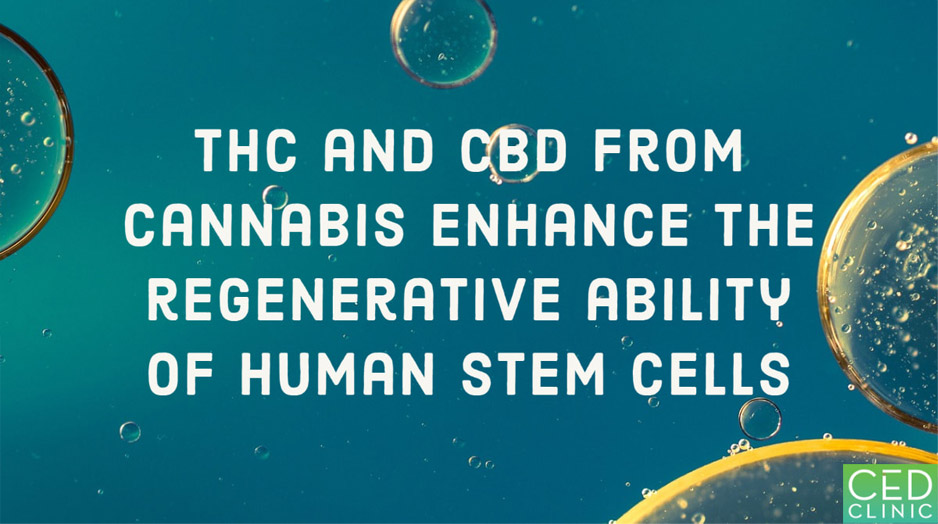Previous research has extensively demonstrated the abilities of cannabidiol (CBD) and tetrahydrocannabinol (THC), two main cannabinoids derived from the plant cannabis, to regulate the proliferation, migration, and differentiation of stem cells. For this reason, a group of doctors and medical researchers recently tested whether bone marrow-derived stem cells (BMDSCs) and adipose-derived stem cells (ASCs), primed with CBD or THC, demonstrate improved regenerative abilities. In their experiments, both types of stem cells were treated with CBD at low concentration, CBD at high concentration, THC at low concentration, or THC at high concentration before being subjected to a migration assay that measured migration rate. Data were promising: CBD priming at low concentration induced migration by 180% in ASCs, and by only 93% in BMDSCs. THC induced similar effect, albeit at a smaller extent: THC priming at low concentration induces migration by 91.6% in ASCs but by only 44.3% in BMDSCs.
In the second set of experiments, fibroblast – the cells that synthesize skin collagen and also functions in immune response to injury – were incubated with ASCs either non-primed or primed with CBD at low concentration, CBD at high concentration, THC at low concentration, or THC at high concentration. Subsequently, the fibroblast cells were subjected to a scratch assay that measured wound healing ability. The researchers found that compared to fibroblasts co-cultured with untreated ASCs, fibroblasts co-cultured with low CBD-primed ASCs had 75% faster wound closure at 18 hours.
Based on these findings, the researchers concluded that CBD and THC priming of stem cells, particularly at lower doses, can enhance several critical regenerative properties including migration and wound closure. Hence, these major marijuana components can help improve stem cell-based therapies, particularly for treatment of wounds.

